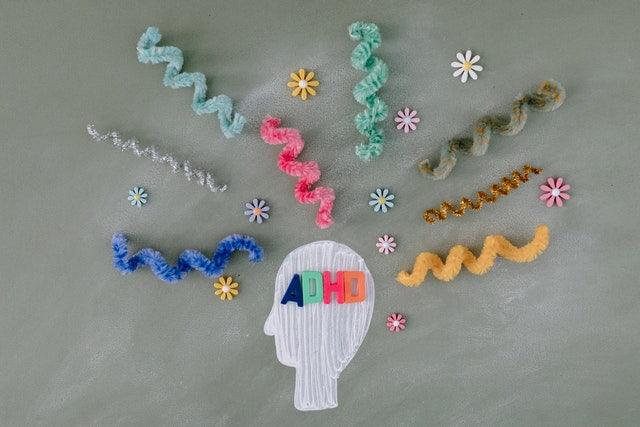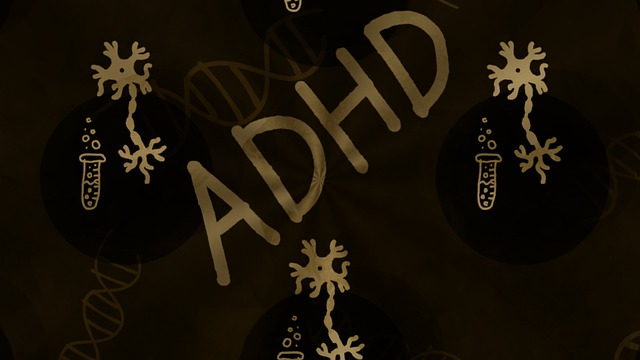What is ADHD?


The name Attention Deficit Hyperactivity Disorder (ADHD) was changed multiple times from the beginning when the Doctors recognised it in 1902. Initially, Attention Deficit Hyperactivity Disorder (ADHD) was considered just a behavioural problem in a child who can't pay attention, fidgets while sitting, and is overly active. But in the later 1980s, when its name changed to "Attention deficit", the American Psychiatric Association (APA) came up with the conclusion that it's just not only a behavioural problem. But it's a problem with the brain's management system.
Attention Deficit Hyperactivity Disorder (ADHD) is an umbrella term covering a range of conditions in which attention is disrupted, and impulsiveness is a standard feature. It can also include situations where concentration is disrupted, and impulsiveness is not even a feature. However, due to some reason and symptoms, a child is diagnosed with attention deficit hyperactivity disorder (ADHD). For example, it can be due to a disorder in the brain that causes the brain to misplace or misdirect attention. It is a psychological disorder characterised by impulsive, aggressive, and defiant behaviours.
It is often associated with poverty and low income. It is characterised by an intense focus on and need for self-control, which leads to reckless, impulsive, and destructive behaviours.

It is one of the most common and costly mental disorders globally. It affects approximately 3.62% of boys and 0.85% of girls in the UK and is a leading cause of adult disability.
Attention Deficit Hyperactivity Disorder (ADHD) is characterised by a chronic and pervasive inappropriate focus and hyperactivity pattern in children.
Children with Attention Deficit Hyperactivity Disorder (ADHD) frequently misplace and fail to allot proper attention to what they want to do. Most children are diagnosed with Attention Deficit Hyperactivity Disorder (ADHD) in their classroom; some schools also appoint psychologists for students who can help them on time. Some other common signs of Attention Deficit Hyperactivity Disorder (ADHD) are:
· Learning challenge
· Spacing out themselves
· Day-dreaming
· Restlessness
· Act without thinking
Parents and teachers must have to look after the child's behavioural changes and the reasons that cause different behaviour of the child.
Women are considered more emotionally and physiologically distressful than men, and they tend to have low-stem. Many women live their lives without even being diagnosed or adequately treated for Attention Deficit Hyperactivity Disorder (ADHD). It's a traditional men's thought that women become aggressive and moody in their adulthood. But that does not apply to every case. Sometimes they try to hide their symptoms and make it worse for themselves.
Studies show that women and girls are not supposed to be hyperactive as per their nature, and women mostly get Attention Deficit Hyperactivity Disorder (ADHD) in their 30s or later 40s.
Some common symptoms of Attention Deficit Hyperactivity Disorder (ADHD) in women are:
· They find managing their time very difficult.
· Disorganization
· Lack of sleep
· Use too much alcohol
· Symptoms of anxiety and depression
· Over-eating
No one knows better than you about yourself and your condition, whether it is mentally or physically. As a woman, you have to notice your symptoms and seek help if needed.

The rise of Attention Deficit Hyperactivity Disorder (ADHD) among men, particularly among the younger generation, only reflects the cultural phenomenon of male bonding.
A recent study revealed that more than 4.4% of men in the United Kingdom have attention deficit hyperactivity disorder (ADHD) symptoms, but most are not well aware of this disorder.
Men's Attention Deficit Hyperactivity Disorder (ADHD) can manifest in many different ways, and it is essential to know the symptoms. There are many various symptoms, and they can vary from person to person, and the signs can be very subtle.
· Blurry vision
· Inattention
· Impulsivity can be associated with Attention Deficit Hyperactivity Disorder (ADHD).
· Hypersensitivity to bright lights and noise can be associated with Attention Deficit Hyperactivity Disorder (ADHD).
· Difficulty balancing can be associated with Attention Deficit Hyperactivity Disorder (ADHD).
· Loss of friends.
Traits of ADHD in men include:
· Low energy
· Poor impulse control
· Lack of motivation
· Increased focus
· Increased attention span
· Decreased self-control
· Decreased social skills
· Poor judgment
For children, most therapies activities are considered, but for adults, the first treatment is not therapy but medications. Although medicine is not supposed to be a proper cure for Attention Deficit Hyperactivity Disorder (ADHD). It can help you ease your symptoms and make your daily life easier. The doctor would check your other medical conditions and then suggest a low dose of drugs for 3 to 7 days until they figure out which medicine will work for you.
The medication that directly affects the brain molecules that control your behaviour, symptoms, and attention is called Psychostimulants; the two most common stimulants are Methylphenidate and Amphetamines.
Apart from medication, doctors have also suggested psychotherapy, stress management, or focus activities to cure attention deficit hyperactivity disorder.
There is a lack of consensus about the Attention Deficit Hyperactivity Disorder (ADHD) diagnosis. The diagnostic criteria for Attention Deficit Hyperactivity Disorder (ADHD) are similar to other conditions, but no one diagnostic test is used to determine whether someone is affected by ADHD. Instead, a diagnosis is made based on observations, assessments, and a thorough examination of a person's behaviour. A mental health professional makes the diagnosis (e.g., a psychiatrist, psychologist, or clinical social worker) and is based on the symptoms and behaviours.
Behavioural therapy can be effective for ADHD symptoms. Studies have found behavioural treatment combined with drugs is best for the majority of people, notably those with moderate or extreme ADHD.
ADHD medication includes stimulant and non-stimulant medicines. Stimulant medication has proven effective for decades and is safe. These are methyl-phenidated and amphetamine. The child who is taking the drug has a strict parental monitoring program similar to that of any drug he or she uses. In addition, two nonstimulating drugs, atomophagetine and guanfacine, were shown to help treat ADHD. These medications are an alternative for those who are resistant to stimulants unless they are prescribed without stimulatory effects. Many children have experienced dramatic relief from symptoms with medication which continues to be treated.
Behavioural Therapy addresses problems with anxiety and hyperactivity. In children, treatment usually consists of teaching children how to provide constructive feedback on desired behaviour if possible. Despite the importance of careful coordination, behavioural therapy helps children learn to manage behaviours and make good decisions. Behavioural strategies are useful in treating ADHD, and they can be used by adults.
Living with Attention Deficit Hyperactivity Disorder (ADHD) might be challenging, but with the right strategies and support, individuals are able to lead fulfilling lives. Managing ADHD involves a combination of medical, therapeutic, and lifestyle approaches.
Stay Organized: Keeping a daily planner or using digital tools help in organizing tasks, setting reminders, and tracking appointments. There are helpful tools out there like the planner from adhdplanner.pro that are specifically designed for individuals with ADHD.
Routine is Key: Establishing a daily routine provides structure and predictability. This includes setting specific times for meals, work, relaxation, and sleep.
Physical Activity: Regular exercise helps in reducing symptoms of ADHD. It aids in improving concentration, reducing anxiety and depression, and enhancing mood.
Healthy Diet: Consuming a balanced diet with plenty of fruits, vegetables, and whole grains have a positive impact on brain function and ADHD symptoms.
Limit Distractions: When working or studying, choose a quiet environment. Use tools or apps that block distracting websites and notifications.
Stay Connected: Building a support system with friends, family, or ADHD support groups provides understanding, advice, and encouragement.
Continuous Learning: Stay informed about the latest ADHD research, treatments, and strategies, which empowers individuals to make informed decisions about their care.
Seek Professional Help: Regular check-ups with healthcare providers, therapists, or counsellors provides guidance, medication adjustments, and coping strategies.
An ADHD diagnosis is sometimes difficult for children. No tests can detect that problem. The doctor diagnoses and monitors ADHD by discussing the child's symptoms with the parent or teacher and then monitoring the behaviours. Doctors use guidelines by the American Psychiatric Association based on how many symptoms people have or how long their symptoms have existed. It is possible for doctors and nurses to determine whether a specific condition is causing symptoms. To confirm the diagnosis, children can take a number of tests to assess their cognitive functioning. Tests should be given by an expert.
Teaching staff and parents can provide parents and doctors with advice on behavioural issues. However, school staff cannot determine if a child is suffering from severe ADHD and cannot determine how much medication is required. These decisions are governed by the physician of the child. A student with ADHD who affects learning may receive special education in order to meet the eligibility requirements of the Individuals with Disabilities Education Act.
Researchers have yet to know what caused ADHD. Genetic factors are associated with ADHD. In addition, a third child has an ADHD relative. Other factors associated with the development of ADHD include premature births, brain damage, and smoking during pregnancy.
There is no known cause of ADHD in humans. It can be caused by many different factors. ADHD does not necessarily result from excessive television or stress, poor school conditions, and food allergies.
1. Sreenivas, S. (n.d.). ADHD in Women. [online] WebMD. Available at: https://www.webmd.com/add-adhd/adhd-in-women
2. Favrod-Coune, T. and Broers, B. (2010). The Health Effect of Psychostimulants: A Literature Review. Pharmaceuticals, 3(7), pp.2333–2361
3. WebMD. (n.d.). Stimulant Medications for ADHD. [online] Available at: https://www.webmd.com/add-adhd/adhd-stimulant-therapy#:~:text=Amphetamine%2Fdextroamphetamine%20(Adderall) [Accessed 20 Apr. 2022].
4. National Institute of Mental Health (n.d.). NIMH» Attention-Deficit/Hyperactivity Disorder (ADHD). [online] www.nimh.nih.gov. Available at: https://www.nimh.nih.gov/health/statistics/attention-deficit-hyperactivity-disorder-adhd.
5. Mayo Clinic (2019). Adult Attention-Deficit/Hyperactivity Disorder (ADHD) - Symptoms and Causes. [online] Mayo Clinic. Available at: https://www.mayoclinic.org/diseases-conditions/adult-adhd/symptoms-causes/syc-20350878.
6. Holland, K. (2015). The History of ADHD: A Timeline. [online] Healthline. Available at: https://www.healthline.com/health/adhd/history.
7. Anon, (n.d.). About ADHD | ADHD UK. [online] Available at: https://adhduk.co.uk/about-adhd/.
For more details on mental health and wellbeing continue to our Mental Health Hub.
A full range of blood tests and medications can be found on our Welzo Online Pharmacy Page.










Plus get the inside scoop on our latest content and updates in our monthly newsletter.